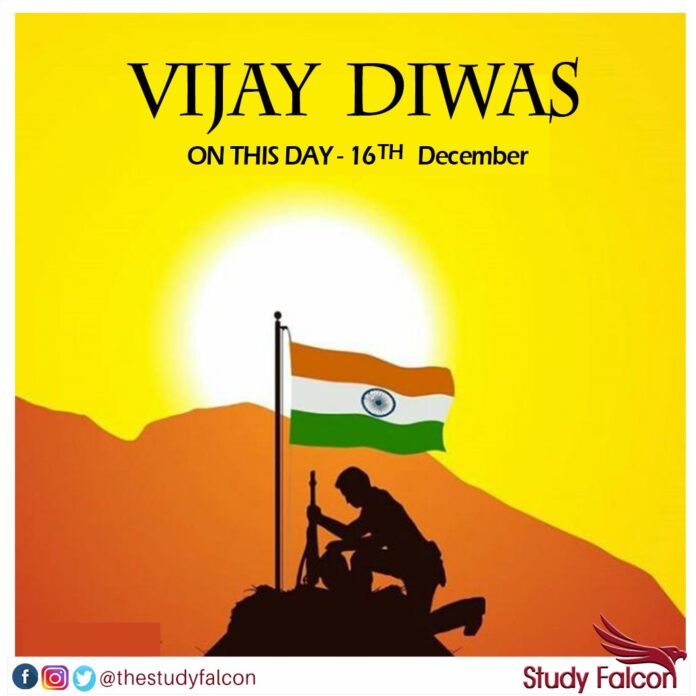Vijay Diwas or Victory Day is observed on December 16 every year by the citizens of India. On this day, Indians remember the victory of the Indian military over Pakistan as well as for the separation of Bangladesh (formerly East Pakistan) from Pakistan during the Indo-Pakistan war of 1971.
On December 3, 1971, a war started and lasted for 13 days. However, the war officially ended on December 16, post which Pakistan surrendered to the Indian Armed forces. General AA Khan Niazi, chief of the Pakistan Army, surrendered to the Indian Army and Bangladesh’s Mukti Bahani, along with 93,000 troops. The Government of India decided on December 03, 1971, that India would go for war with Pakistan to save Bengali Muslims and Hindus. This war was fought between India and Pakistan for 13 days only. But, the Pakistani army surrendered before India with 93,000 soldiers. It was the Indian Army’s one of the biggest victories ever made against Pakistan. Indian army brought Pakistani soldiers to their knees. Another fact is that Bangladesh was born on this day. Hence, Bangladesh celebrates its independence day on December 16 every year.
The Indo-Pak war effectively began after preemptive aerial strikes by Pakistan Air Force (PAF) across airfields in north-western India, including Agra as part of its Operation Chengiz Khan. The Taj Mahal, which glowed in the moonlight, was camouflaged using twigs and leaves to hide it from the enemy aircraft.
In response, the Indian Air Force flew about 4000 sorties in the western front and close to two thousand in the east. PAF could offer little in retaliation with around 2800 and 30 sorties on the two fronts. IAF continued to raid forward air bases in Pakistan till the end of the war.
The Indian Navy’s Western Naval Command successfully conducted a surprise attack on Karachi port under the codename Trident on the night of December 4-5. Pakistan had also mobilized its troops along the western front. The Indian Army retaliated and captured several thousand kilometers of Pakistani territory.
At the end of the war, around 93,000 Pakistani troops led by General Amir Abdullah Khan Niazi surrendered to the allied forces. They were returned as part of the Shimla Agreement of 1972. Pakistan was stripped of more than half of its population, as Bangladesh was more populous than West Pakistan. Nearly one-third of its army was captured. India’s military dominance was telling though it maintained restraint in its reaction to the victory.
Lieutenant General Amir Abdullah Khan Niazi, who was heading the Pakistan Armed Forces, signed the Instrument of Surrender on December 16, 1971. The surrender document was a written accord that enabled the surrender of the Pakistan Eastern Command in the Bangladesh Liberation War, marking the end of Indo-Pak war of 1971.
According to reports, there were reports of a massacre of Bengalis especially Hindus by the Pakistan army. At least 10 million people were forced to migrate to India during the war.
This year completes 50 years of India’s victory over Pakistan. The government is organising ‘Swarnim Vijay Varsh’ programme where Prime Minister Narendra Modi and Defence Minister Rajnath Singh will also mark their presence. The event will be organised at the National War Memorial in New Delhi.
The credit of India’s victory over Pakistan equally goes to the Bangladesh army as well as the Indian Armed Forces. This year, the Eastern Command will host 30 freedom fighters and six serving members of Bangladesh Defence forces to commemorate Vijay Diwas, 2020.










